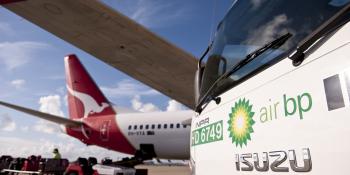Qantas
As the world’s third oldest airline, coming in behind Dutch flag carrier KLM at the top and Colombian airline Avianca in second, Qantas’ claim to fame is that it is the oldest continuously operating airline in the world.
Hudson Fysh and Paul McGinness, together with local grazier Fergus McMaster, founded what would later become the national carrier. This was just 17 years after the first powered flight by the Wright Brothers, two years after the end of World War One and at the tail end of the last major global pandemic, the Spanish Flu.
The new airline focused on conquering the country’s unique geography which was a major barrier to the growth of modern Australia. Its chances of success were deemed so slim that early backers of the project called their investments “a donation”.
Initially carrying post between outback towns, the airline was flying passengers to Singapore by the 1930s. By the end of the next decade, its strategic importance saw it nationalised and in the 1960s it was an early adopter of the jet aircraft that brought about the rise of global travel. Qantas invented business class in the 1970s, switched to an all-747 fleet in the 1980s, was privatised in the 1990s, founded Jetstar in 2004, went through major restructuring in 2014 and, by 2020, had recently completed several important ‘firsts’ in non-stop travel to Europe and the US.
Menzies wins Qantas and Jetstar contracts
Operations at the Perth and Brisbane hubs has already begun, with Cairns and Darwin to follow shortly
Qantas and BP partner to pursue net zero ambitions
Both companies are dedicated to reaching the net zero emissions goal by 2050

